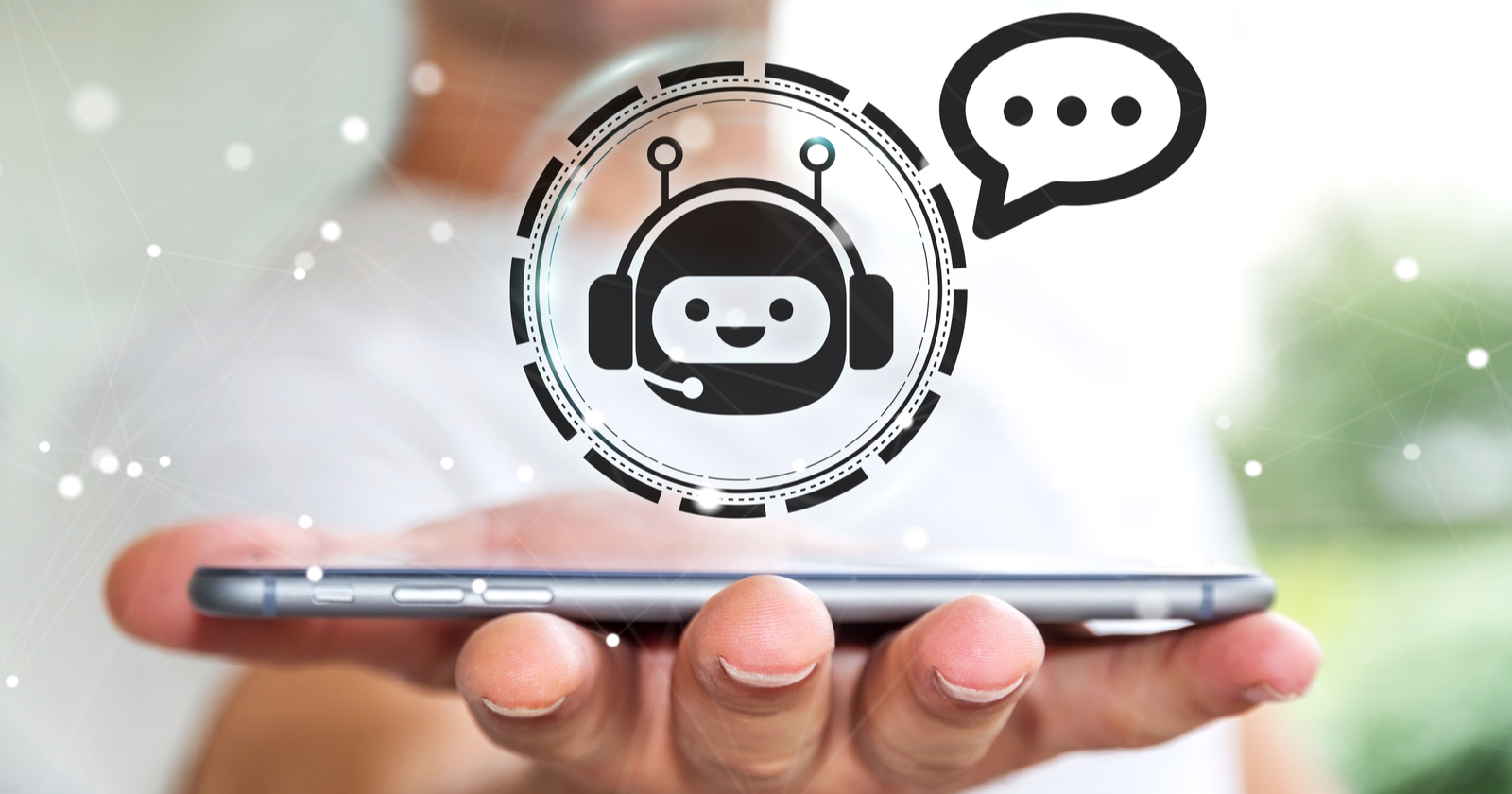What’s the hype with chatbots?
We’ve all been there at some point as customers where we have a burning question we need an answer to, and we check, and the store hours are closed, so we can’t call.
We search but can’t find info in their FAQ section or on the website.
Hello! A chatbot pops up to ask if you need any help. Finally, you can get your simple question answered and move on about your day.
Chatbots help transform the frustrating experience of not finding the information you need into a positive interaction with a brand.
The customer gets the information they need in a cost-effective, low-resource way for the brand.
But these chatbots are improving communication and meeting business needs and objectives in more ways than one with their deep learning capabilities.
Over the last couple of years, more companies have been integrating chatbots into their communications process to engage with customers.
As chatbots evolve to better communicate with customers, there’s been more helpful interactions. A recent study showed that 80% of customers had a positive experience with chatbots.
With consumers’ needs increasing for around-the-clock communication, companies are adapting to find ways to meet customers’ needs through automated response systems.
But knowing when and how to use chatbots is key to successful integration into your business strategy.
Since 36% of consumers think that chatbot’s accuracy could make efforts to improve, it’s essential to figure out where to incorporate chatbots and where human interaction is still necessary.
So, let’s break down different ways to use chatbots so you can learn how to incorporate them to better support your brand and alleviate some tasks off your employee’s plates.
Innovations & Benefits
As we discussed, businesses have traditionally used chatbots to communicate simple responses to their customers.
This has been incredibly impactful for ecommerce businesses during the pandemic, but this shift is becoming a normal standard of communication with brands for several reasons.
Businesses are incorporating better artificial intelligence capabilities for their chatbots to handle the specific issues customers bring to them and understand more complex questions.
In addition, they are evolving from generic and general messaging, which could end up backfiring and frustrating their customer, to more intuitive personal responses.
Chatbots have also become an omnichannel response system not just for brand websites but for their app and social media channels, especially for Facebook.
Now, businesses can meet consumers’ demand for 24/7 communication opportunities with their favorite brands.
Not only can companies interact more with their customers, but chatbot integration has easy scalability to meet high volume needs.
Chatbots also offer the opportunity for customer behavioral prediction, which can help predict customers’ intent to either provide them with more options such as purchasing or providing information on their order, or better gather information for an agent to answer their questions.
Additionally, they help collect information and offer solutions faster, creating a streamlined experience.
For businesses with heavy call flow, chatbots provide another mode of communication to alleviate high call volume.
But, chatbots are becoming more valuable than just communicating with customers.
Common Business Uses Of Chatbots
Sales & Marketing
According to studies, customers are open to purchasing items through bots.
Insider Intelligence states that by 2024 retail consumers will spend $140 billion worldwide through chatbots. Chatbots can help by suggesting products and assisting with the purchasing process.
By using chatbots, you’ll get to connect with customers efficiently and effectively, which means increased customer satisfaction which can lead to higher revenue.
When businesses use chatbots to send messages for abandoned carts can help increase sales by up to 25% for ecommerce brands.
In addition, brands can connect with two to five times more customers through chatbots than they would connect with via email interactions.
Content Marketing
So, how can chatbots help with content marketing? First, chatbots can help collect valuable information from people interested in your brand.
Chatbots can organize, store this information, and segment consumers for future marketing campaigns. This can be incredibly useful for creating more accurate target marketing.
Based on the information from dialogue with chatbots, marketers can use this info to help with personalizing brand content.
However, while chatbots are excellent for informing content marketing, brands shouldn’t necessarily use AI to create the content itself.
Creating content is more complex, and AI isn’t as reliable in creating authentic content that will truly connect with your target audience.
Customer Support
We’ve talked about how great chatbots can be in providing 24/7 customer support and immediately responding to customer inquiries, but do customers actually want to talk to a chatbot?
Reports show that 40% of customers prefer messaging chatbots over a virtual agent. Chatbots can do more than answer simple questions.
For example, they can provide updates on any order, help customers select and buy a product, give a tracking update, and process returns or exchange products.
Additionally, Chatbots Magazine states that chatbots can cut customer service costs by 30%, with a potential in the U.S. to save overall brands $23 billion.
As we mentioned, companies can incorporate chatbots on many platforms, such as their website, app, and social media.
Even if companies initially implement simple chatbots, they can at least provide customers with simple responses and a wait time for when they can speak to a representative or let them know when customer support will reach out to them.
Instead of customers emailing and waiting for days for a response just to not get their questions fully answered, they can receive immediate responses.
In addition, this type of simple chatbot support will let customers know they are a valued part of your brand’s community.
Social Media & Lead Generation
As we know, chatbots can help brands gather information and help marketers better understand customer behavior and preferences, but they also have better customer interaction rates on social media.
Facebook messenger chatbot interactions increase consumer confidence in a brand or business.
Interestingly enough, Facebook messenger is powered by a computer program over AI with easy implementation. Chatbots are also great for tracking analytics such as your open rates.
Businesses can also use social media chatbots for updates and send mass messages. Keep your customers informed with daily or weekly announcements about deals, events, and promotions.
Or you can prompt customers to book a service, make an appointment, take orders, or share new content through social media chatbots.
Another fun and valuable way to interact with customers is to create quizzes, surveys, or polls to help you gather vital information to generate better leads.
Chatbot Challenges
Even with all their advancements, chatbots still have some challenges to overcome.
For example, chatbots can have issues creating proper sentence structure across different languages, as well as understanding slang or colloquialism.
AI and chatbots are helpful in assisting brand teams, but they cannot replace a writer or editor to create compelling content.
Another problem with simplistic chatbots is that if your chatbot cannot answer more complex questions, they can misinterpret customer requests or execute inaccurate commands.
As chatbots attempt to keep pace with customer expectations, the industry is building more human-like chatbots with the help of machine learning, artificial intelligence, and natural language processing.
In time, they will become a more efficient way to assist brands’ teams than they are already proving to be.
Trends For Chatbots
According to Juniper Research, by 2023, chatbots will help retail, banking, and healthcare industries save $11 billion solely on customer service inquiries, with over 2.5 billion hours saved.
Additionally, out of these sectors, the retail industry will be able to maximize the use of chatbots by 70% to assist with customer inquiries.
Not only will chatbots help with customer interactions on brand’s websites, but there will be more use within brand’s apps, with 50% of the chatbot usage through apps.
They can assist the IT help desk and customer service employees by learning to answer the repetitive questions customers ask and improve response time.
Internally, they can collect and organize information to help with human resource duties such as onboarding and gathering valuable updates on employees.
When discussing chatbots on the SEJ Today podcast, Dr. Michelle Zhou, co-founder and CEO of Juji, Inc. and the inventor of IBM Watson Personality Insights, said chatbots are improving and can help give personalized information based on conversation.
She shared the following example:
“Let’s say if you go to a book website and then after the person chats with the chatbot for a certain amount of time, let’s say five or 10 minutes, the chatbot can really recommend books which are tailored to the person’s interests, passion, and even personality interests.”
Chatbots are moving to more intuitive conversations versus simple run-of-the-mill responses.
In addition, chatbots are transforming to use NLP to better understand and send accurate answers to users.
She continues discussing chatbot improvements, focusing on their importance for small businesses.
For example, since it’s not possible to hire numerous people for all the functions and customer service components needed to scale a business, chatbots can become virtual assistants to help with mundane or repetitive processes so employees can focus on other areas throughout the company.
Takeaway: Is There A Future For Chatbots?
Yes, there is a future for chatbots. Fortunately, it seems that chatbots are here to stay for the foreseeable future.
Chatbots are changing the way businesses communicate and understand their customers.
With AI, chatbots will have the ability to deliver a more personalized customer experience.
It’s also saving companies money through customer service, internal processes, and marketing efforts. There is so much potential to incorporate chatbots throughout a company’s website, app, and social media platforms.
Ecommerce brands are already capitalizing on chatbot capabilities, and there are opportunities for brands to start taking advantage of all the ways chatbots can help grow brands.
More Resources:
- Facebook Messenger Marketing & Chatbots: 11 Ways To Get Started
- How Cognitive Intelligence Will Reshape Chatbots With Dr. Michelle Zhou [Podcast]
- How To Advertise On Facebook: A Beginner’s Guide
Featured Image: sdecoret/Shutterstock





![[SEO, PPC & Attribution] Unlocking The Power Of Offline Marketing In A Digital World](https://www.searchenginejournal.com/wp-content/uploads/2025/03/sidebar1x-534.png)